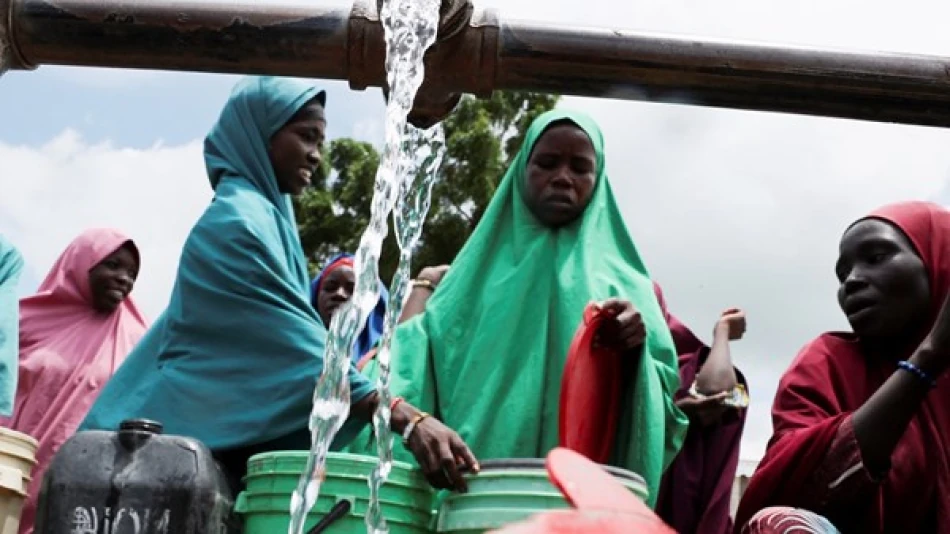
U.S. Pledges $32.5M to Combat Hunger Crisis in Nigeria
US Commits $32.5 Million to Combat Nigeria's Deepening Hunger Crisis
The United States has approved $32.5 million in emergency aid to address Nigeria's escalating food crisis, targeting over 760,000 displaced people in conflict-affected regions. The funding comes as northern Nigeria faces what UN officials describe as an "unprecedented hunger crisis" that could leave 1.3 million people without food access and force the closure of 150 nutrition clinics.
Crisis Reaches Breaking Point in Africa's Most Populous Nation
Nigeria's food security situation has deteriorated rapidly, particularly in the northeastern and northwestern regions where insurgency and banditry have displaced millions. The World Food Programme's West Africa Regional Director, Margot van der Velden, warned in July that the combination of persistent insecurity and shrinking international funding has created a perfect storm of humanitarian need.
The crisis is particularly acute in Borno State, the epicenter of the Boko Haram insurgency that has raged for over a decade. Years of conflict have disrupted agricultural production, destroyed infrastructure, and forced farmers to abandon their lands, creating a cycle of dependency on humanitarian aid.
Strategic Aid Distribution Targets Vulnerable Groups
The US funding will provide direct food assistance and nutritional support to 764,205 beneficiaries across Nigeria's troubled northern regions. The program specifically targets the most vulnerable populations, including 41,569 pregnant and breastfeeding women and girls, plus 43,235 children who will receive supplementary nutrition through electronic food vouchers.
This electronic voucher system represents a modern approach to humanitarian aid delivery, allowing recipients greater dignity and choice while supporting local markets. The method has proven effective in other crisis zones, from Jordan's refugee camps to Yemen's conflict areas, by injecting cash into local economies while meeting immediate food needs.
Broader Implications for Regional Stability
Nigeria's hunger crisis extends far beyond humanitarian concerns, posing significant risks to regional stability in West Africa. As the continent's largest economy and most populous country with over 220 million people, Nigeria's internal displacement and food insecurity can trigger cross-border migration and regional instability.
The timing of this aid package reflects growing US strategic interest in West Africa, where China and Russia have been expanding their influence. Food security assistance serves dual purposes: addressing immediate humanitarian needs while strengthening diplomatic ties with a key regional power.
Funding Gap Threatens Long-term Solutions
Despite the substantial US commitment, humanitarian organizations warn that current funding levels remain insufficient to address the scale of need. The World Food Programme has repeatedly highlighted funding shortfalls that force difficult choices between maintaining existing programs and expanding to reach newly displaced populations.
The crisis also underscores the limitations of emergency aid in addressing structural problems. Without significant improvements in security, agricultural productivity, and economic opportunities, Nigeria will likely require sustained international support for years to come. The challenge mirrors similar situations in Somalia, South Sudan, and Afghanistan, where chronic instability has created persistent humanitarian needs.
For international donors and development agencies, Nigeria represents both an opportunity and a test case for addressing complex emergencies in fragile states. Success in stabilizing food security could provide a model for similar interventions across the Sahel region, where climate change and conflict increasingly intersect to create humanitarian crises.
Most Viewed News

 Layla Al Mansoori
Layla Al Mansoori






